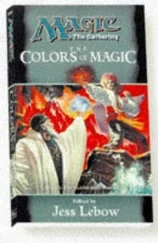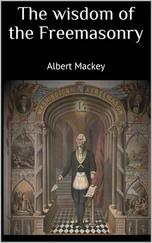“And why is that?” asked Ossama with great interest, pricking up his ears as if to glean every word from this lecture.
“There’s nothing more logical. If you erect buildings that are to last eternally, sooner or later there will be no land on which to build others. Look at the pyramids. No one in this country would think of building pyramids — they’ve stood their ground for four thousand years — and yet they are being built abroad. They’re the height of fashion in modern architecture!”
It was not only self-satisfaction, but all the pride of a hardened criminal that animated Suleyman after this lesson in modernity he’d passionately put forward for a future architect. He was beginning to feel at ease despite the obscurity that continued to surround the fate of his letter. Prince or not, he found Ossama charming enough to be the son he could not have. This led him to think of his family, of his wife who had become as fat as an opera singer from eating sweets, and of his daughter Anissa who called him a thief and who refused to accept his money on the pretext that he took it from the pockets of the poor. Exactly where did she expect him to get it? She said she was studying law in order to take people like him to court and send them to prison. All those years spent amassing a fortune by skimping on concrete only to hear such nonsense from the mouth of his sole heir — it was enough to mortify even an assassin. But this short visit to his family that he made in his imagination left no trace of bitterness in him; the words of a woman will remain empty of meaning for all eternity. He returned to his initial motive for appearing at this café, and this time he tried a new approach — one that pleased his vanity. He had come to believe that the slowness and ambiguities guiding this meeting had nothing malevolent about them, but that they simply corresponded to his companions’ ardent desire to prolong the discussion for the sheer pleasure of hearing him speak — a pleasure he shared. Without a moment’s hesitation he continued his account of the advantages of ephemeral constructions, demonstrating thereby that he had nothing against an educational conversation.
“As I was saying, some buildings must disappear in order to leave room for new ones.”
“Disappear how? With their occupants?” asked Karamallah perfidiously.
“Of course not. We are not brutes.”
“Can His Excellency tell me, then, how he makes provisions for this disappearance?”
“It’s a matter of proportion. One needs to calculate the minimum depth of the foundations and the thickness of the walls, and to be especially careful not to squander concrete as if it were nothing but watermelon seeds.”
“You are an extraordinary man,” said Karamallah. “How could I have lived until now without knowing you? Well, that gap in my life has just been filled.”
“I am but a simple servant of the nation.”
“The nation will be grateful to you,” Karamallah predicted. “That is, if the earthquakes can prove their efficacy far from your buildings.”
“That is my daily prayer,” declared Suleyman.
All around them the discussions grew louder and the general euphoria increased as the night progressed and the air filled with the fragrant smoke of hashish and tobacco wafting from the hookahs. Ossama had neither Karamallah’s rigor nor his self-control and it was difficult for him to contain his delight. He had the impression, as in a frightening dream, that he would not be able to stifle a burst of laughter much longer. He was responsible for a mission that was to end in a blazing grand finale for the man of precarious buildings, and it behooved him to maintain an attitude in keeping with his role as a student with newly attributed princely obligations. Until the moment he was to reveal to Suleyman the fate that had befallen his letter, he was forbidden to give himself over to the joys of irony. His impassioned youth was urging him not to delay the moment any longer; he wondered if Karamallah had learned enough from this dignitary of a villainous order, or if he wanted to feast on all the colors of infamy.
Suleyman noticed Ossama’s weariness and his desire to get on with it, so he spoke directly to the young man.
“So then, Prince, shall we discuss the letter?” he said in a friendly but determined tone of voice. “I assume you have it on you.”
“Indeed, yes,” answered Ossama, “one could say I have it on me. And in a way that you will never guess.”
“Well, show it to me,” said Suleyman somewhat nervously. He seemed to realize that something out of the ordinary was being plotted against him and that this thing was about to destroy forever his serenity as an untouchable citizen.
“It’s not that simple,” said Ossama evasively, as if he were speaking to a child pestering him with questions. “What’s the hurry? Aren’t you enjoying our company?”
Suleyman made an effort to control himself and seemed to reflect. The conversation with the prince had become more and more opaque, and he felt his mental abilities faltering in the face of so many evasions and recurring enigmas.
“We must agree on something in the end. I’m not going to stay here all night, despite the pleasure I find in your company. I am a businessman and my time is precious. Kindly tell me what it is you require to return the letter to me.”
“I’ve already told you; I don’t want a thing. I have this letter on me and it will never leave me. It is my amulet. Since I found it, I no longer fear anything. I’ll let you be the judge: the very day I picked it up on the sidewalk, a taxi that was driving by as usual with the hope of doing away with a few pedestrians almost mowed me down. I realized then that I had been saved from a horrible death by the magic radiating from this letter.”
“The nerve! I forbid you to fool around with my letter!”
Ossama opened his shirt and exhibited a leather case hanging around his neck on a thin silver chain.
“Your letter is here. I’m still too young for my honor to be credible. So I am counting on you and your honor, which has been legitimated and recognized by all the authorities, to serve as my alibi should anything go wrong.”
Suleyman was overcome with anger; his face became swollen and took on a greenish cast. He looked like a balloon inflated with the breath of hell. He leaned over the table and, in a voice that threatened Ossama and, beyond him, all the rebels of the planet, said:
“Tell me, Prince. Are you not a thief?”
Ossama stood up, bowed ceremoniously, and answered in a humble voice filled with contrition:
“A very small thief compared to you, Excellency!”
Nimr burst out laughing, and his laughter was like no other — a revolutionary laughter, the laughter of someone who has just discovered the ignoble and grotesque face of the powerful of this world.












